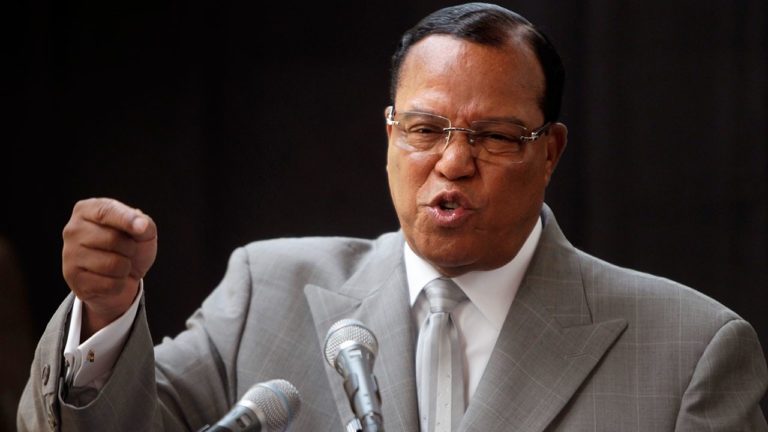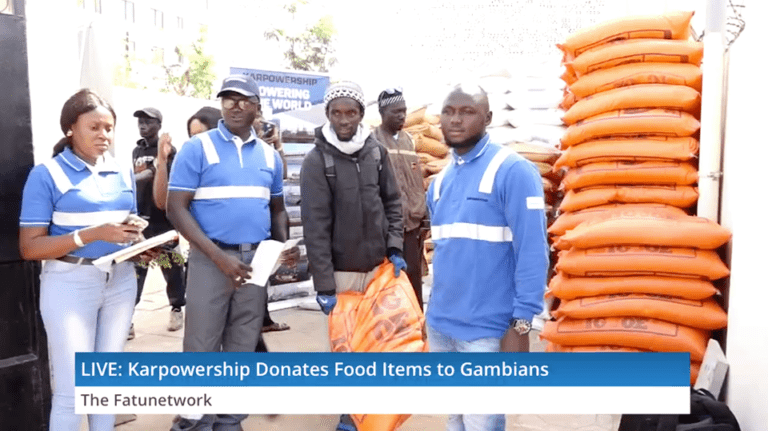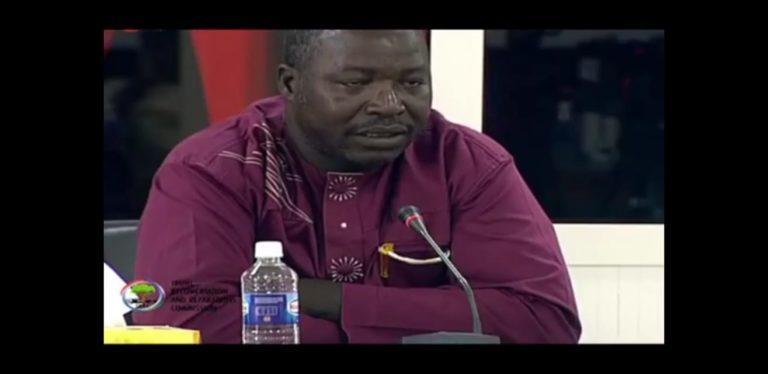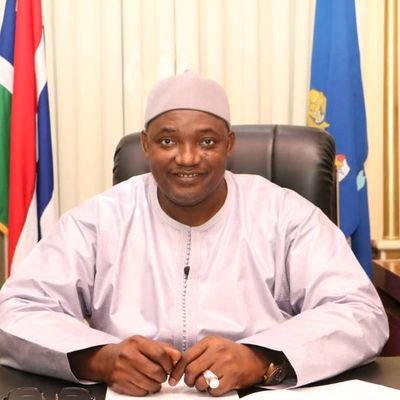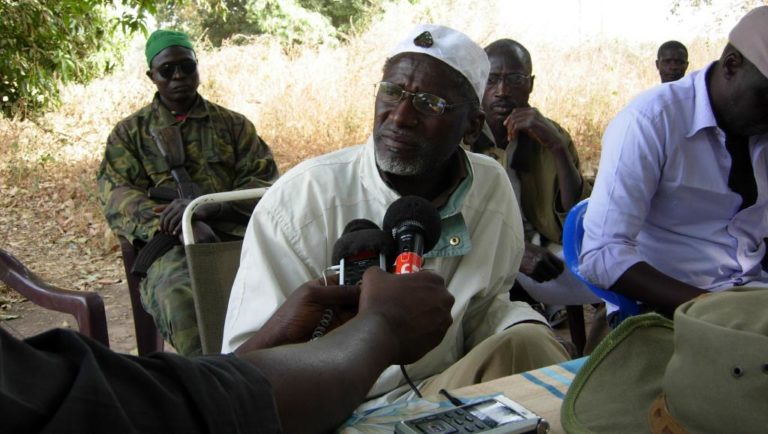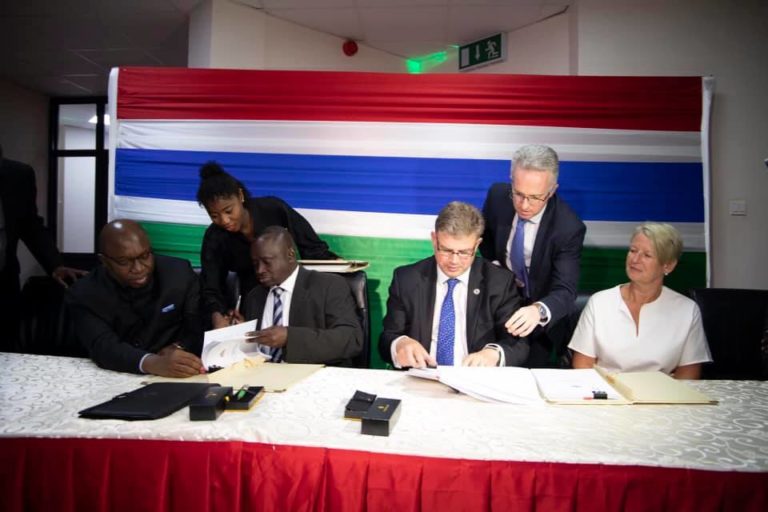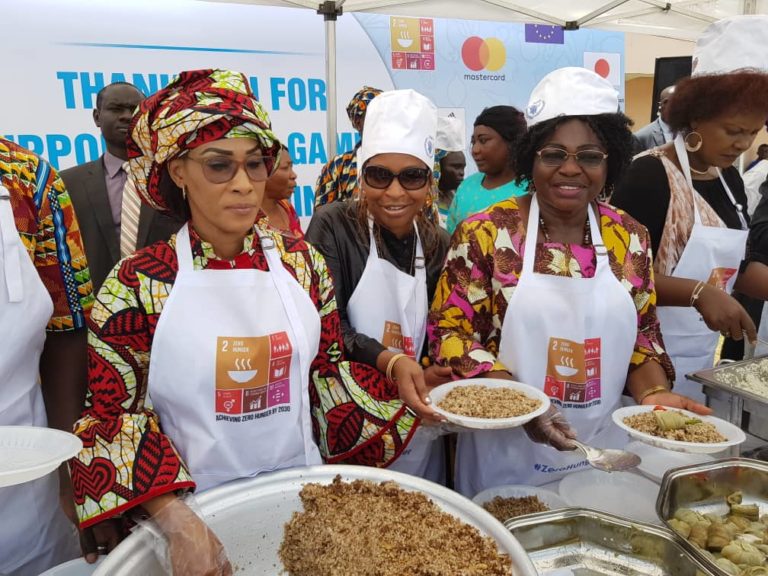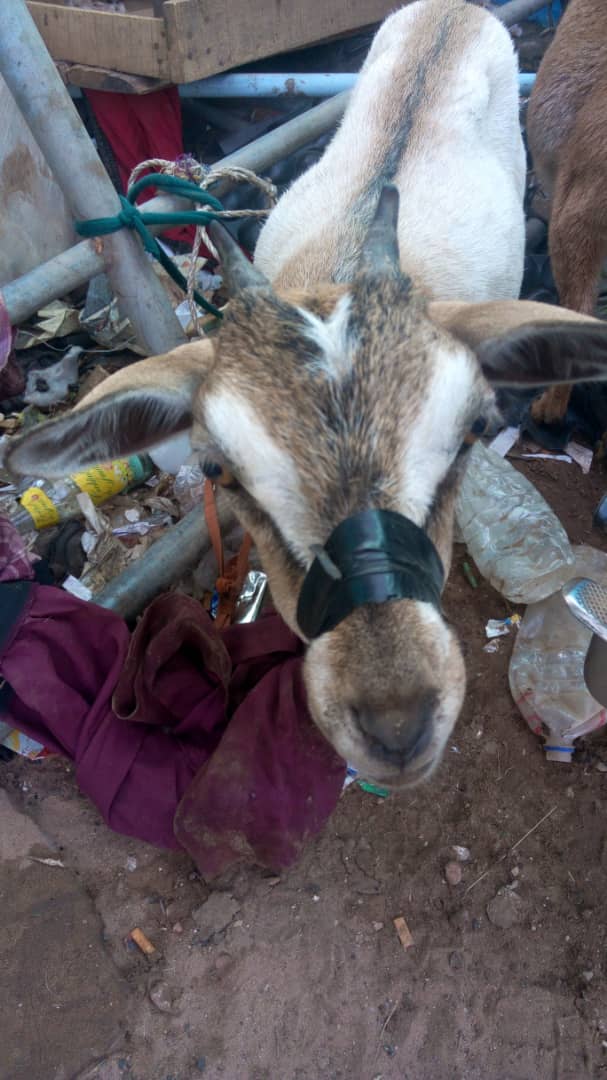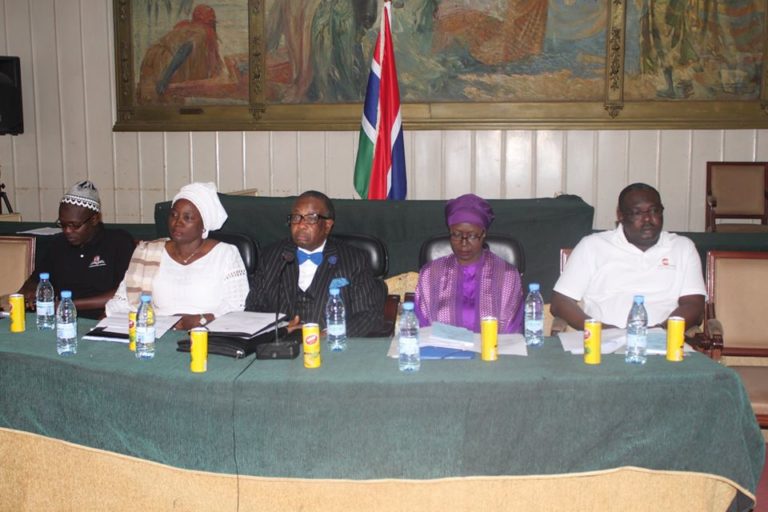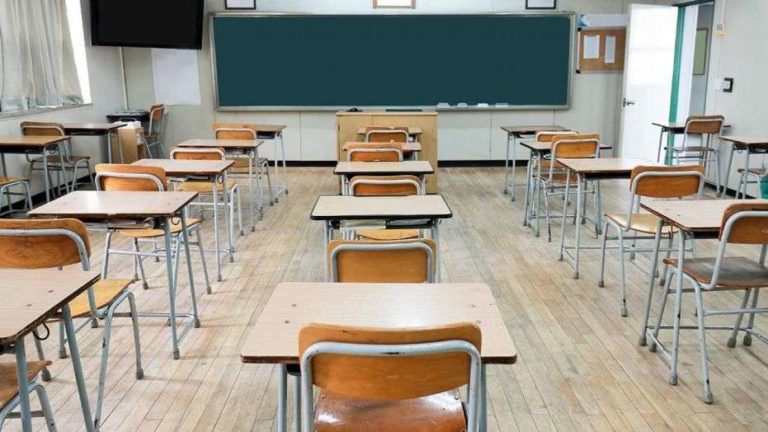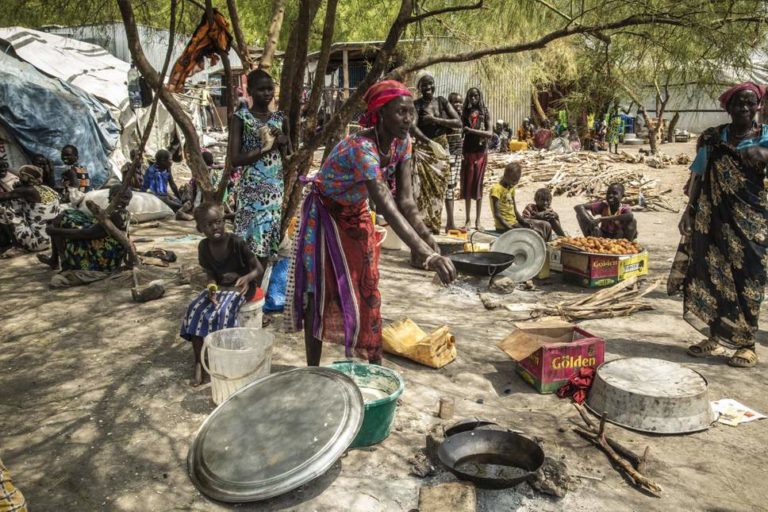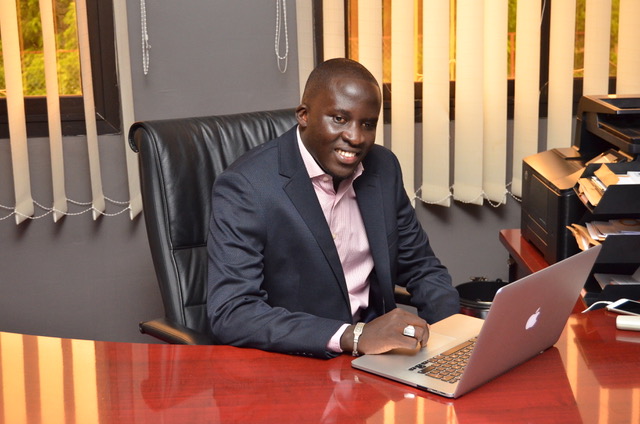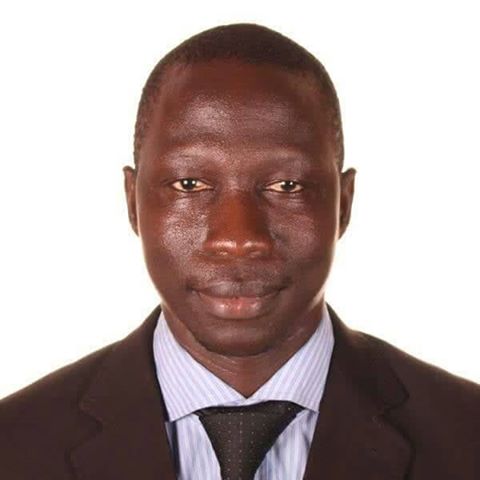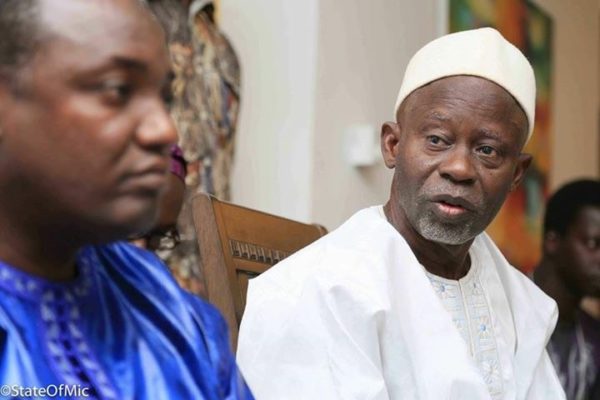This is not a biography about my mother. It is just an attempt by a son to put on record an account of a remarkable woman so full of love, care and understanding, whom I am blessed and so fortunate to have as a mother.
It is difficult to know where to begin with this tribute to my mother for two reasons;
Firstly, on Tuesday 19thof March 2019 when my brother Omar called me while I was at work to break the saddest news of my life, the passing away of our mum (Yaboi) my whole world broke into pieces, and the memory of that day is still fresh on my mind.
Secondly, another difficulty I find in writing this tribute is the fact that I have lived with my mother except for a brief period, throughout my life. Where does one begin with such a tribute?
These are some of the challenges I face in writing this tribute. There may be others but I feel like I am communicating with my mother in the process and I must carry on.
My mother’s name is Fatmatta Camara fondly known as Yaboi to many. She was born in Banjul on the 19thof October 1944. Her father Ousman Camara (Baa) and her mother Aja Fanta Darboe (Mma) both of blessed memories originally hail from kiang wurokang. My mum had five siblings all boys, myself Edrissa M’Bai (Bai), Ousman M’Bai, Omar M’Bai, Ebrima M’Bai (Bai Nyass) and Malick M’Bai.
My mum had a very special relationship with her mother Aja Fanta Darboe (our grandmother) affectionately known as Mma. Their relationship was so special. It was like two best friends. She always used to give her mother long notices of the exact day she would be arriving in the Gambia so that she could start counting the days until her arrival. Once she booked her flight she would either phone and tell her, or she would tell me to tell her when she would be arriving. The excitement of knowing that is a couple of weeks’ time my mum would be coming home for holidays was always a great joy to my grandmother. Every weekend my grandmother would send us a hot bowl of porridge which she cooks herself.
My grandmother always calls me either Bai Sambang or Ndary M’Bai Sambang. My mother simply calls me Bai (having been named after my paternal grandfather who was also referred to as the father of my village, Sambang). These are two strong, remarkable women who did everything they could, sometimes even against their own comfort zone to make us comfortable in life. They made us who we are today and we shall continue to be eternally grateful for their sacrifices. May their gentle soul continue to rest in peace. My grandfather Baa was a very quiet man. You could hardly hear him when he speak unless you pay extreme attention. He was a man who was never in a rush. In those days we used to grow corn at the back of the yard in Dippakunda. I could never escape Baa whenever I had with me roasted corn. He would simply call me “Bai Sambang let me see that thing you are having”. He would use his fingers slowly to take a few rows then return the corn to me. Many years later I came to know what Baa was teaching me is the virtues of sharing. I remember Baa passed away the day my uncle Ablie Camara returned home from the UK. Although less than 10 years at the time I could very well remember the day. It was a very sad day and the first time I saw so many people in our compound crying.
I consulted my cousin Muhammed Singhateh about the exact date Baa passed away and he informed me that Baa passed away at around 8.30pm on 29thDecember 1975. I can still fondly remember him sitting on his favourite chair in the living room in Dippa kunda.
Camara Kunda at Dippa kunda was the base where we all grew up happily with our uncles and cousins as one family. On Saturdays and Sunday morning together with my uncles, cousins and brothers we would go to Manjai Kunda to fetch for firewood which was used for cooking.
As a child I have on many weekends been sent by mum to the Serekunda market with my uncle Alieu Sanneh (Nfally) to do some “Nduga” for her. Because of the girls I was likely to meet at the market I never look forward to going to the market. My mum would go to work in Banjul and after closing she would return home in Latrikunda to do her cooking using charcoal or firewood. Today I would be more than proud to go to any market for her at any time.
After finishing her schooling at Methodist Girl’s High School (Later known as Gambia High School) she proceeded to Yundum college to get her teacher training certificate qualification before going to teaching at the Serekunda primary school. The late S.W. Riley and O.D. Mbye were her classmates at Gambia High School. Miss Macmason was my mother’s first teacher in high school.
Her care for people led her into the field of nursing. She worked as a nurse for decades both in the Gambia and in the UK. She worked at the RVH (now EFSTH) as a midwife and later as lecturer at the Gambia School of Nursing where with the Head of the school Mrs Palmer, together with Mrs Maram Bobb and others, she taught those aspiring to become nurses most of who later qualified as nurses and have been contributing their quota since as nurses in the Gambia and abroad.
Her boss at the Gambia School of Nursing Mrs Palmer saw potentials in her couple with her dedication to work. She was given two full scholarship opportunities to further her nursing training abroad but missed both due to circumstances beyond her control. Scholarship in those days was not easy to get and having missed two opportunities she was told by her authorities that if she would not make use of the third opportunity which was a nine months course in the UK, they could not guarantee that she would ever be given any scholarship in the future.
I am happy to have supported her in making the tough decision not to miss that golden opportunity, an unpopular decision which later turned out to be not only the right decision but also a blessing for the whole family.
While in the UK she worked in several hospitals such as Hillingdon Hospital and later at St. Pancras Hospital for Tropical Diseases at King’s Cross. She did morning, afternoon and night shifts. Occasionally she would do agency work for extra cash to reduce the financial pressure that was ever present throughout her life. These were tough times but my mum belonged to the old school which is to live by one’s sweat. She never believed in begging people because she was naturally a shy person.
She retired in 2004 and continued doing agency work at various hospitals in London to reduce her debts before the banks went after her to recover their debts. One of the banks later realized that rather than she owing them, they actually owed her as well as many of their customers.
It was a great relief to her when the bank eventually paid her because some of her financial worries were greatly reduced eventually.
She returned home in the Gambia in 2012 to live in the house she built many years ago but which she never fully enjoyed except for her occasional yearly holidays when she would spend between one month to six weeks.
Myself and all my brothers as well as others have lived with our mother for most of our stay in London at Windsor House. I have lived with my mother at three different places in London, first at 68 Huntley street, Grafton Way and finally at Windsor House.
She had a large heart and would go all out to make life comfortable for everyone. While we were going to school in the Gambia, getting some books used to be a challenge so she was always running around bookshops in London to send us any request made over the years. It was not only books, but whatever we needed.
I cannot recall how many times I have gone to the post office to receive a parcel sent by my mother, or to receive shipping with my uncles full of goods from the ports in Banjul to be shared amongst us all and not one item was for sale. Even the newest baby in the compound would have his or her share. The shipping would usually contain clothes, shoes, medicine, food stuff such as Digestive biscuits or cream crackers, tuna sardines, corn beef, giant size packets of Tetley tea bags, Imperial body soap, old newspapers, books etc. Sometimes the arrival of the shipping would meet her in the Gambia on holidays so that she could do the sharing by herself. In those days even a Tetley tea bag from UK was not as popular as our local tea called “tea bush”,” mbor mbor”for some or “kingkiliba”for others.
For most of the time we were going to school she had been away but she always made sure that we were never in need of anything that was necessary and useful. Every month she would either send our monthly allowance through the post or she would give a letter with cash to someone coming from the UK to the Gambia. Sometimes she would meet these people usually Gambians, at the train stations or even at the airport and at short notices just so that our allowance is not delayed. On one occasion she enclosed over 250 pounds sterling in an envelope and gave it to someone to bring for us but not having heard from the said person for days since his arrival, I contacted him through the phone only to be told by his mother that the envelop was lost. On my mother’s advise we made no issue out of that matter and that was the end of it.
At a time when it was not unusual to see the wives of some senior Government officials using official government vehicles to attend weddings and naming ceremonies, my mum would queue in the early hours of the morning near the Latrikunda mosque to join a GPTC bus to work where she was earning less than D1000 a month.
On one such occasion, while I was comfortably seated at the front of the bus, unknown to me my mum was standing at the back of the bus wearing her white nursing uniform going to work. Assie Hydara, a neighbour and a student of Gambia High School who was also in the bus, drew this to my attention and I immediately gave her my seat.
This situation continued until the late Mr Abdoulie Mbacke who was then in charge of Transport at the Ministry of Justice came to the rescue of my mum to ease her transportation difficulties but only for the vehicle to take her to work and back home.
My love for Agatha Christie and my appetite for reading developed thanks to my mum who would send us any book she considered worthy of reading. Be it newspaper cuttings, magazines, you name it, she would send them to us regularly.
When she was lecturing at the Gambia School of Nursing she would occasionally bring home copies of World Encyclopedia which broaden my understanding to the biographies of great American presidents especially. It was from this period that I became intrigued about the lives of president Richard M. Nixon and Jimmy Carter to this day.
I will never forget that cold winter night when getting an accommodation for me in London was becoming too difficult, my mum and I under the rains using the London underground, went all the way to Willesdeen Green, having read from a newspaper the availability of a room only to be told by an old English lady wearing thick glasses, upon seeing us that the room was no longer available. My mum and I were both disappointed but she gave me the assurance that everything will be fine. Few weeks later she was able to get me an accommodation in Chingford at Walthamstow, near the Dog Stadium with the help of my uncle Ousainou Camara, to live with a Sierra Leonean lady who I came to know simply as aunty Oumu, then living with her 10 year old son called Tokumbo. This was in 1992.
While studying in London I did all kinds of work be it as a waiter at Belushi’s Bar and Restaurant in Covent Garden or as coffee maker at Pret A’Manger at St Martins Lane, or by simply giving my name and phone number to Agencies to contact me whenever there was any job offers just to ease the financial burden from my mum’s shoulders which as far as I remember have always been present in all her life and never reduced.
I remember working for a Mexican Restaurant known as Chiquitos in Covent Garden for two days then I was asked to bring along my passport so that they could employ me. I could not bring my passport because it was stated on it that I am not permitted to engage in any employment in the UK without a work permit which I never had. I was never paid for my two days’ work. Years later any time I go to London I feel tempted to go to that same restaurant and make an expensive order and after eating to quietly leave without paying.
Teaching and Nursing being her background my mum generally love children and never want to see a child cry. She shared all she had with the needy regardless of who you are or where you came from.
At the time she lived in London, whenever she goes to the Gambia on holidays she would try to reach out to as many people as possible and the same gesture was always reciprocated.
To say that my mum loves flowers is an under-statement. She could not live anywhere without having flowers around and nothing gave her greater joy than watering her flowers by herself. It has always been a common thing to see flower pots in our house centrally positioned near the window where they will receive enough sunlight.
She loved taking a walk to Regents’ Park which was just few minutes walking distance from where we were living at Windsor House.
Jim Reeves was her favourite and she would usually sing along when the music was playing. Her frequent playing of Jim Reeves made me also fall for his music to this day. Kenny Rogers, Jimmy cliff, Bob Marley, Youssou Ndour, Neil Diamond, Isaac Hayes, Aretha Franklin, Michael Jackson, Elton John, Nina Simon, Don Willaims, Ifang Bondi and Kinneh Lam to name a few were some of her favourites but gentleman Jim Reeves was top of her list.
Although we never went to watch any matches at Wimbledon, knowing my love for tennis my mum took me to the Wimbledon Museum and bought me some tennis memorabilia that are still with me more than two decades now.
Pete Sampras, Andre Agassi, Boris Becker, Goran Ivanisevic, Steffi Graf, Monica Sellas, Yana Navotna, Lindsay Davenport, Martina Hingis were some fine tennis players she loved watching display their talents and skills in the finest art of sportsmanship at Wimbledon. This was the time when the new tennis sensation, the William sisters (Venus and Serena Williams) were just beginning their professional career at Wimbledon. At that time the two sisters were identified more by the colourful beads on their hair than their performance in the tennis court which they came to dominate for many years both in winning trophies and in rankings.
These are precious moments that I will always remember sharing with my mum. I remember watching with my mum the historic victory of Manchester United at the finals of the 1999 European Champions League over Bayern Munich when they were one nil down until in the dying three minutes Manchester United scored two goals. Many of Manchester United fans had already left the stadium at the time believing they lost the match. What a jubilation I had with my mum that night.
We all used to say our mum’s headquarters was Camden town where she did most of her shopping for the simple reason that she could buy most of her fruits and vegetables at a more reasonable price compared to other places. On a normal week she would go to Camden town at least twice. Our meat seller at the corner shop Raja from Pakistan where we buy halal meat knew my mum’s favourite is either lamb chops or chicken wings.
My mum saw all of us as her children and her love for us was unconditional. She did not only show us love and care, she treated all of us with the same love. When one of my brothers then living in the US had an accident and was hospitalized my mum did not just offer him prayers, she flew to the United States on two occasions to give him the necessary moral and financial support he so much needed.
She never stopped caring for us at any time. If we were not so fortunate to have a mother like her I can honestly say that our story today would have been different. She was like the roots of a tree (though not visibly seen) without the roots there would be no tree to enjoy the fruits or its shade. She never enjoy taking the lime light and she never claim credit for anything. She always like doing her own things unnoticed. I can safely say that my mum was camera shy because for her any publicity for anything she did was of less significance to her. She was never comfortable in making known publicly or privately whatever good deed she did for people. She was a very private person.
Her generosity and caring transcended not only to people but even to animals. While we were living at Latrikunda (near the big tree) we had a brown dog called chips that my mum made sure was well fed on a daily basis. My mum was so distraught when chips was killed by a car.
She was like Mother Theresa, generous to all and love sharing all she had with everybody, especially the less privilege. She was more concerned with helping the needy than buying expensive jewelries and dresses for herself but this does not mean she never appreciated quality. She knew exactly where to find quality whenever she needed one. H. Samuel, John Lewis, D.H. Evans, Harrods, Burtons, and Argos were some of the shops in London she did most of her shopping.
Sainsburys, Tesco, and Budgens were supermarkets she used to go frequently using her ATM card.
My mum was not only the best cook I have known, food was never in shortage at Windsor House. A bowl of salad after meal, ice cream, fruits, a cup of tea, fresh orange juice you name it was always available. When it comes to apples granny Smith was my favourite but my mum would also buy golden delicious and coxes just in case someone prefers those ones.
Every December 31stshe would make sure she record from BBC the important events that took place that year throughout the world in a video cassette and send it to us in the Gambia just in case we missed out certain major events in the news even though at that time I religiously listen to BBC radio with my black 9 meter band radio that she sent me.
Every year my mum would buy The Sunday Times newspaper either the last Sunday in December or the first Sunday in January just so that she could send me the Rich List which was usually published together with the Sunday Times at that time of the year. I still have some of those magazines.
While I have no doubt that my mum has saved my life many times, I can still fully remember two painful incidents that without her swift intervention I could have easily died many years ago. The first of these incidents happened when I was sent to Dankunku for schooling. My brothers Ousman and Omar were sent to Bansang. I was exposed to a room with a mosquito net that had so many holes. Naturally I got sick with malaria. Until you get malaria you sometimes don’t know whether the constant mosquito noise on your ears that make you wake up in the middle of the night that is more painful and irritating, or the mosquito bite.
Even though communication at that time was not as good as it is today, no land phones in Dankunku no mobile phones then, how my mum knew I was sick I never found out but she instructed my uncle Alieu Sanneh (Nfally) to fuel my uncle Momodou Lamin Camara’s (uncle) vehicle and go pick me without any delay. That was a distance of over 145 miles. I was then staying with my aunty Bajen Awa. Because of my critical health condition she could not object to my going back. Upon arrival at Dippa kunda my mum used her thermometer to take my temperature. It was unusually high. I was suffering from cerebral malaria and I remember my mum telling me later that if I had not received medical treatment a day late there was no way I would have survived that sickness.
As far as I remember that was the first time I was given Nivaquine tablets to drink. After drinking the tablets I developed a reaction causing me to scratch all over my body. When the scratching was not helping the situation I decided to take shower. That was a bad mistake because the itching got worse. Later on anytime I got sick with malaria, I always take some piriton tablets first before taking Nivaquine tablets.
The second incident my mum saved my life was shortly after she left for her nine months course in the UK, malaria made another attempt of my life. I was so sick and so weak that I could not walk, I had to crawl from the bedroom I shared with my three brothers and a cousin, to the toilet. This one also even though she was in the UK my mother again instructed my uncle Alieu Sanneh (Nfally) to use my uncle’s vehicle to take me to Dr Kurang for treatment forthwith. Yes it is true that my mother made all the necessary arrangements before leaving for the UK for us to get medical treatment whenever the need arose.
Many years later when I come to think about how my mum knew I was so close to death due to suffering from malaria the only conclusion I could come up with is what I would call as a mother’s intuition.
My mum passed away quietly on her bed when three of her brothers Ebrima Camara (Burama), from South Africa who is next to her and Suwaibou Camara (Sai) from Australia, the youngest in her family, came to see their sister at Bundung that afternoon. My uncle Ismaila Camara (Soum) from Germany later came to see his sister (our mum) that very day.
My uncle Burama explained to me that she went quietly. My mum decided to take her exit in life when all her brothers for the first time as far as I can remember were around in the Gambia from South Africa, England, Germany, Sweden and Australia to attend the 40 days charity of their mother (our grandmother, Mma) who passed away on Friday 25thJanuary 2019 and her 40 days charity was Tuesday 5thof March.
Exactly three weeks after her passing my first cousin Lamin Camara from Sweden passed away in the USA on Friday 15thFebruary 2019. Before Lamin’s 40 days charity on Tuesday 26thMarch my mum passed away one week earlier.
My brother Ebrima M’Bai (Bai Nyass) who live in the US, was here on holidays and had just left on the 9thof January this year. Within 48 hours after the death of our mother he was back home to share with us our great loss. This just shows the special love we all have for our dear Yaboi.
She enjoyed watching David Dimbleby’s Question Timeon Thursday night. She was never happy with the way Jeremy Paxmanusually put off students in his programme University challenge. Andrew Marr’sSunday morning programme was one of her favourite TV programmes. She enjoyed watching Mastermind hosted by Magnus Magnusson. Zainab Badawiand Moira Stewardwere some of her favourite TV newscasters.
She never missed any of our birthdays by sending a special birthday card as well as make a phone call on the day itself to wish us happy birthday however busy she was.
She had so many friends such Ya Haddy Gibril, Aunty NabihaFaye, Aunty Kaindehbut without a doubt Aunty Fola Allenwas her best friend, a friendship that started well before I was born. I remember so many times when Aunty Fola would bring her basket full of fruits, and ‘Nanburoo’ every Easter.
She had a special liking for Christmas probably because being born in Banjul and growing up in Grant street she had so many Christian friends. We were always treated with a special meal on Christmas day with plenty of nuts, fruits and drinks as well as listen to nice Christmas Carrols.
When I reflect on the past I am just so happy to have had the courage to stand for my mum and to have given her all the moral support she needed when many years ago she had to take some tough unpopular decisions which decisions years later have turned out to be not only right but a blessing to the whole family. Whatever she did for us she did out of love and not because it was obligatory on her.
I am still using the nail cutter she bought for me since 1990.
No one can fully be prepared for the death of a person no matter how old or sick the person may be. The day my mother passed away and the day she was buried are two days I will never forget in my life. Since her death I have visited her grave more than a dozen times. My brothers Ousman and Ebrima (Bai Nyass) live abroad, so Omar, Malick and I after every Jumma pray meet at her grave at the Dippa kunda cemetery to offer some prayers for her and others. I believe that even though she is gone she is keeping an eye on all of us every single day.
Certain things are better kept silent, painful as it may be on my part, I would be abdicating my moral responsibility as a son if in an attempt to make a befitting tribute to my mother I fail to state the pain and sufferings she had to go through for most of her life. I am a living witness to some of the trials and tribulations of life she had to unfortunately go through.
On Sunday 28thof April after the 5 O’clock pray we shall all gather at Dippakunda, Camara kunda at the family compound to observe her 40 days charity by prayers and recitation of the Holy Quran. We shall do so with comfort and satisfaction that we were very lucky to have been blessed with the kind of mother we had, so caring, so loving, so humble and so hardworking.
Although we lost a mother we are comforted by the fact that her only sister Ajaratou Ramatoulie Camara (Nna) whom she performed the pilgrimage to Mecca with in 1995 is here with us.
I will end this tribute with two quotations.
“The greater our knowledge increases the more our ignorance unfolds.”
John F. Kenedy.
“People will never truly understand something until it happens to them. God always gives His best to those who leave the choice with him.” John Eliot
Until we meet again Yaboi, lots of love from your boys.
EDRISSA M’BAI (BAI)

